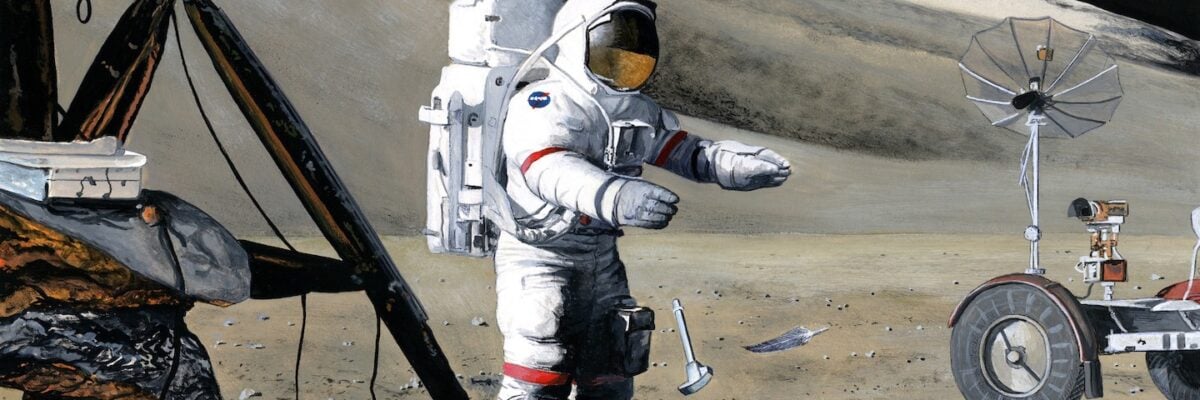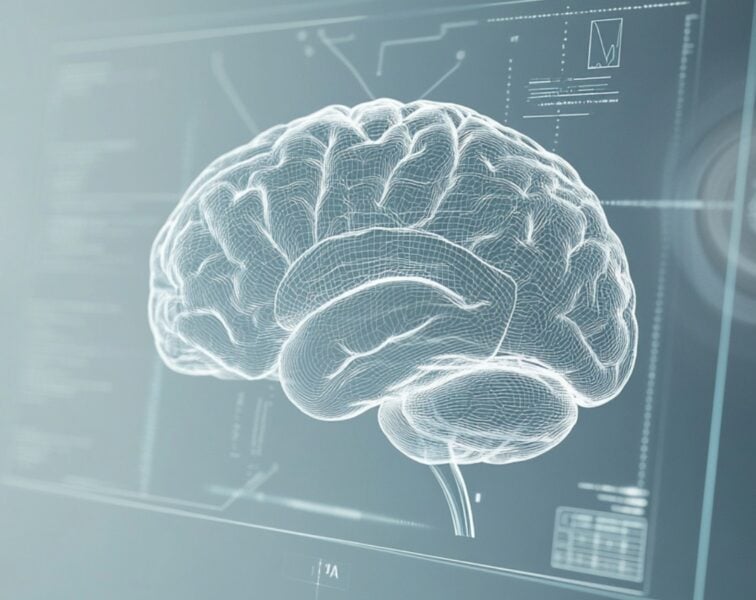Like anyone with children right now, the end of this past school year went from in-person schooling to remote learning education. The transition felt like it happened overnight. Most districts are now navigating how to resume in-person learning in some way but the at-home learning provided me the opportunity to observe what, and more importantly, how, my 11-year-old daughter Olivia is learning (in science class in particular).
At first, as I watched her prepare for her end-of-year exams, I was impressed. She was learning terms like homozygous, heterozygous, chromosome, and all in primary school science! I didn’t learn these terms until medical school! I began to ask her questions, initiating conversation about what she understood, and using the terms she was studying. I just as swiftly realized she couldn’t tell me much more than a textbook definition for each. It reminded me of Richard Feynman recounting a story of an experience he had with his father when he learned that knowing the name of something doesn’t mean you understand it. And so you can imagine how I became a bit deflated. After all, if you know anything about me you know how much I love the process of learning and finding things out. It is likewise my hope for Olivia and all learners of science (bound to be scientists or otherwise) to fall in love with the process of discovery and experimentation. This can’t happen from a textbook. As I observed with Olivia, terms from a textbook can be memorized, but they are not written to be experienced. So I began to think about ways to bring the textbook terms to life and I thought I’d share some anecdotes that epitomize what I hope to impart: Science is about the process of discovery, getting curious, and hanging with uncertainty. It is also a collective pursuit where new discovery is often built on previous discovery and individuals who engaged in the very same process. Once again (and assuredly not the last time) I will reference Richard Feynman who simply said, “It [science] is the pleasure in finding the thing out.” Science—along with anything enduring—is about the process.
One of the most classic (and famous) stories about the process of scientific discovery is about Alexander Fleming. The story goes that when he returned to his lab after a vacation in 1928, he found a mess. He had been studying the bacterium Staphylococcus aureus, which he had in Petri dishes around the lab, but some had been contaminated by a mold called Penicillium notatum. Remarkably, the mold seemed to stop the growth of the bacteria. His original experiment had been destroyed – but he had also just discovered penicillin! He later wrote, “I certainly didn’t plan to revolutionize all medicine by discovering the world’s first antibiotic … But I guess that is exactly what I did.” This story is a good example of how science really happens: It’s messy, often accidental, and you have to think hard about what you observe. Often the greatest advances in science come not from being the first to see something, but from being the first to see something in a way others have not.
Science is as much about the investigation—or the process—as it is the final result. In order to make accidental discoveries like Fleming’s, the observer needs to have an open mind and be curious. The observer also has to allow for uncertainty in the process. Unlike the certainty of memorizing terms from a textbook or lecture, experimentation has an “I wonder what will happen” quality. It is this space of uncertainty that allows for possibility. I’ve yet to hear a single world-class scientist tell their story without some element of good and bad luck combined. In my podcast with Lew Cantley, who discovered phosphoinositide 3-kinase (PI3K), he said, “If I get a result that suddenly doesn’t make sense, to me that’s more exciting. It means there’s something more complicated going on than the simplest explanation for what I’m seeing. . . if you’ve broken up a whole new field because your simple explanation doesn’t work and you figured out why it didn’t work and what was wrong, then that’s where most breakthroughs come from.” In science, it is okay not to immediately understand what happened. It is okay for a learner of science not to know. But we can better develop the skills of science learners to investigate what has been observed and to ultimately understand what they saw taking place.
Lawrence Principe, a professor of chemistry and history of science and technology at Johns Hopkins, worried that we send the wrong message to students when we give them a false idea about what science is, making it seem sterile and theoretical and implying that you have to be a genius to make any sort of scientific contribution. Instead, he says, the history of science is about “fallible individuals, people of all kinds, just trying to ask questions about the world.” What I emphasize is that the learning process is not a task to be completed like memorizing a flashcard, but more like a journey of discovery.
When science investigation is about the story—the experiments that demonstrate a given principle—memorization is often not necessary. Take the classic video of an unforgettable experiment of a hammer and a feather on the moon. No memorization required. I can read about how all falling objects accelerate at the same rate regardless of their size, shape, or mass (à la Galileo’s discovery) in the absence of an atmosphere (à la Newton’s law of gravity), but I can also see the principles demonstrated (as in the video). Which one do you think resonates more?
In my investigations with Olivia, I considered settings in her everyday life where certain concepts could be demonstrated. Of course, this can be anywhere. But it is important to find places she enjoys spending time. One of the first things Olivia and I looked to explore was buoyancy. Olivia was spending a lot of time in our backyard pool this summer and it is hard to be in a pool and not notice that some things float while other things don’t. We looked at two bottles that were identical except one of them was completely filled with water and the other was only partially filled. Since they were plastic bottles, the one that was completely filled with water sunk to the bottom of the pool while the other one pretty much remained at the water’s surface. After some exploration and Socratic leading, I saw that she could eventually recite the Archimedes Principle to me: the force of buoyancy is equal to the weight of water displaced.
We also spent time on what she wanted to learn. We followed her curiosity to build on and explore. She wanted to learn about speed and it ended up being my favorite lesson with her. Her interest came from a television show she loves called The Flash. It’s actually one of the things that got her really interested in science. It’s about a kid who can run really fast (at four times the speed of sound, according to Olivia). But how fast is that actually? It turns out that we needed to first understand the relationship between distance and time (speed in principle). Together, we created an experiential design to investigate speed: We chose to think of speed in feet per second (ft/s). Using archery, I was able to show her that shooting an arrow 50 yards takes half a second to hit the target. With a bit of guidance on conversion, she was able to calculate the speed to be roughly 300 ft/s. We then applied the understanding of speed ratio to how fast The Flash was actually running. We took the speed of sound (343 meters per second; m/s), multiplied by 4, and Olivia found that he runs 15 times faster than my archery arrow was shot! The Flash can run approximately 4500 ft/s.
By beginning with what Olivia wanted to learn about and then applying the principle to a character she loves, the scientific concept could really come alive. But perhaps what made the investigation even more enjoyable was when she became the subject of the experiential process: The next day, our lesson was finding out how fast Olivia can run. I set up a 20-yard course and had her do a whole bunch of sprints back and forth. We could also then talk about averages because she did the course multiple times. We figured out that she was running about 20.1 ft/s (or about 224 times slower than The Flash, not surprisingly).
Olivia became an observer of science and the subject of the experiment. In following her curiosity, she also experienced how the discovery process can build on itself. (We started with speed and naturally went into average speed.) She experienced one of the most important things about scientific learning: all science investigation builds on itself. As philosophy professor Jane Maienschein described it: “Science incorporates innovations and responds to changing environments in ways that produce an important historical record. […] All science builds on past successes and failures and is both constrained and enabled by progress in the past.” Just like learning itself, our understanding of the world builds on former learnings and the investigators who shared them.
Despite remote learning in the context of Covid-19 being a challenging adjustment, it may also be a great opportunity for science learners to engage in experiential learning by implementing what they learn in the virtual classroom. To me, having students of science follow the journey of discovery is a better way to weave the narrative arc of science rather than strictly learning from textbooks and worksheets. I often think about how, if we taught science from the perspective of discovery and not just memorization, we’d have a lot more kids who are passionate about and want to do science. I borrow from Feynman once more when I write that words in a textbook impart the tools of science but it does not teach science itself. It’s not that there isn’t any value in knowing that DNA is a helical structure and has base pairs and a backbone, but that shouldn’t be the focus. How the scientists arrived at discovery is the story worth telling. Even for students that don’t go on to be in science fields, they’ll have an appreciation for the process. To me, that is what science is. And if there is one thing I want children to learn in primary and secondary school science class, it isn’t rote memorization of definitions. Why is this so important? Because if we learn to memorize we are not learning to understand. I want children to learn about the process of discovery—about what makes science enjoyable. It is stories about investigation that bring terms from classroom lectures to life.
– Peter




